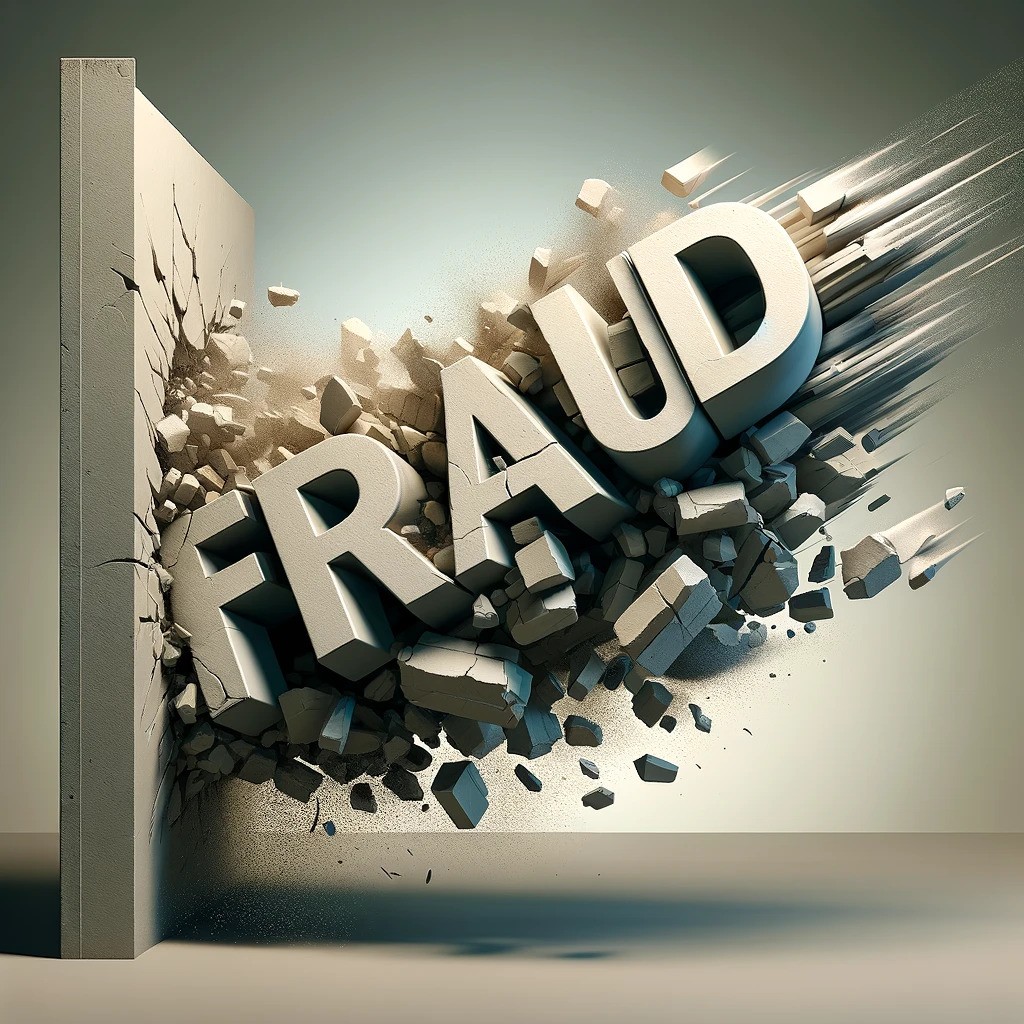
Identity Theft Crimes have grown increasingly common in the United States. Again and again, California citizens are most likely to become victims of identity theft. If you become a victim of identity theft in California, it’s important that you take the following steps as soon as possible to report the theft and to safeguard your accounts from further harm.
How to Report the Identity Theft Crime to the FTC and Police
California law permits you to report identity theft to your local police department. Ask them for an official police report of identity theft. Provide as much detail in the police report as possible – one way is providing copies of credit reports with items related to identity theft marked.
Additionally, California citizens can utilize the Federal Trade Commission (“FTC”) identity theft report, also known as the identity theft affidavit. This is an online form that allows you to certify that you are a victim of identity theft and explain which accounts are affected. Give any new evidence you gather so they may add it to their report, and be sure to obtain copies for creditors and bureaus as part of this case (See “Organizing Your Identity Theft Case” from Identity Theft Resource Center for further assistance). For further reading: “Organizing Your Identity Theft Case”, published by Identity Theft Resource Center.
To complete an FTC identity theft report, go to the FTC website here. Once you are there, you will put your information into the requested fields and describe your experience. Then at the end, you will type your name under penalty of perjury. Below is what a completed identity theft report looks like.

How to Dispute Fraudulent Charges with the Bank?

The easiest way to report fraudulent charges is by first calling the bank’s fraud department at the number on the bank of your card. However, this may not be enough. If fraudulent use has occurred on your credit card, then you must send in a written dispute to the address provided on the credit card statements. Even if it is your existing account, fraudulent charges should not be your responsibility.
Note that all the information below is as of the date of this article. Each bank may have different contact information now, so it is important that you verify before you call.
How to Dispute Fraudulent Charges with Chase
To report fraudulent charges with Chase, you can call the following numbers. For more information, here is Chase’s Fraud Website.
- Checking or savings account: 1-800-935-9935
- Debit card: 1-866-564-2262
- Credit card: 1-800-955-9060 (don’t forget the written dispute to address on the statement)
- Business credit card: 1–888–269–8690
- Debit card fraud concerns: 1-800-935-9935
- Chase Customer Support Service: 1-800-978-8664
- Mortgage Statement Fraud: 1-800-848-9136
How to Dispute Fraudulent Charges with Bank of America
To report fraudulent charges with Bank of America, you can call the following numbers. For more information, here is Bank of America’s Fraud Page.
- Call Bank of America’s fraud hotline at 800-432-1000
- Consumer Credit Card: 1.800.472.7970 (don’t forget the written dispute to address on the statement)
- Business Credit Card: 1.800.892.3219
- Deposit Accounts (Debit Card, Checks, Zelle): 877.366.1121
- Home Loans: 1.800.669.6607
- HELOC: 1.800.934.5626
- Auto: 1.800.215.6195
- Forward suspicious emails or text messages to abuse@bankofamerica.com
How to Dispute Fraudulent Charges with Wells Fargo
To report fraudulent charges with Wells Fargo, you can call the following numbers. For more information, here is Wells Fargo’s Fraud Page.
- Checking Account, Savings Account, Debit or ATM Card Fraud: 1-800-869-3557
- Zelle or other ACH transfers: 1-866-867-5568
- Credit Card Fraud: 1-800-642-4720 (don’t forget the written dispute to address on the statement)
How to Dispute Fraudulent Charges with Citibank
To report fraudulent charges with Citibank, you can call the following numbers.
- Citibank Fraud hotline: (65) 6337 5519
- Call Citi Cards Customer Service at 1-800-950-5114
Call the number on the back of your card for credit card fraud
How to Dispute Fraudulent Charges with U.S. Bank
To report fraudulent charges with U.S. Bank, you can call the following numbers. For more information, here is U.S. Bank’s Fraud Page.
- Credit Card, Debit Card, or ATM Card: 866-821-8411
- Checking or Savings Account: 877-595-6256
How to Dispute Fraudulent Charges with PNC Bank
To report fraudulent charges with PNC Bank, you can call the following numbers. For more information, here is PNC Bank’s Fraud Page.
- 888-762-2265
How to Dispute Fraudulent Charges with Capital One
To report fraudulent charges with Capital One, you can:
- Call 1-800-227-4825 from the U.S. or Canada
- Call 1-804-934-2001 to collect from outside the U.S.
- Call 1-888-464-0727 immediately for debit card fraud report
- Call 1-800-655-2265 to report a lost or stolen debit card, or to dispute a transaction
- Forward the email or text to abuse@capitalone.com
How to Report Fraudulent Charges with TD Bank
TD Bank customers can report fraud by calling 1-800-893-8554.
How to Report Fraudulent Charges with USAA
USAA customers can report unauthorized credit card or ATM/debit card transactions by:
- Logging into usaa.com or the USAA Mobile App
- Selecting “Dispute Transaction” from your account activity page
- Calling 800-945-6759 for credit cards
- Calling 800-951-4539 for ATM/debit cards
- Emailing abuse@usaa.com
Can I Request the Fraudulent Credit Application?

Yes. As a victim of identity theft, you have the right to receive information related to the application or account, including a copy of the unauthorized person’s application or application information and a record of transactions or charges associated with the application or account. You also have the right to receive copies of all paper records, records of telephone applications or authorizations, or records of electronic applications or authorizations. This right comes from California Penal Code Section, 530.8 and from Fair Credit Reporting Act, 15 U.S.C. § 1681g.
This information is important because it allows you to know what the fraudsters utilized to break into your account. It is also important because this information can supplement your dispute and help you to demonstrate that you truly are a victim of identity theft. For more information and a template form that you can submit to the companies, see the California Department of Justice website here.
Reach Out to Your Credit Card Companies
When fraudulent charges are on one account, they could be on multiple accounts. Call your credit card companies and ask for the security or fraud department. Make them aware you have been victimized by identity theft; tell them to put a fraud alert on your account.
If any of your existing credit accounts have been misused fraudulently, you have the option to have the credit card company immediately and report this action as “closed at consumer request”. When opening new accounts, you can set them up so require password or PIN authentication before use (do not use your mother’s maiden name or the last four numbers of your Social Security number as a password). Ask creditors for documentation of fraudulent accounts as described above (see above item). For more details, see the Federal Trade Commission Identity Theft Information Page.
Identity Theft, How to Report to the Three Credit Bureaus?
Report identity theft to all the major credit bureaus by dialing any one of the toll-free fraud numbers provided below or by going to their respective website, to which we provided links. When you call you’ll reach an automated phone system without being able to speak directly with anyone at this time.
This system will require you to enter your Social Security number and other identifying data to verify that it’s you disputing with the credit bureaus and flagging it with an initial fraud alert of 90 days duration – hopefully helping stop fraudsters from opening accounts under your name.
Each credit bureau will send you a letter verifying and outlining how to retrieve a copy of your report as part of their fraud alert program, without incurring a cost for these reports as victims of identity theft. Likewise, these reports contain telephone numbers where victims of identity theft can reach someone within each bureau’s fraud department if needed.
- Experian 1-888-397-3742
- Equifax 1-800-525-6285
- TransUnion LLC 1-800-680-7289
Request Additional Free Credit Reports from Credit Bureaus
California identity theft victims who file a police report, identity theft report, or a report with other law enforcement agencies have the right under the Fair Credit Reporting Act to have fraudulent accounts blocked. In order to block a bank account or fraud on bank statements, you will first need to review your free credit report to see what is on it. Go to the Federal Trade Commission website at https://www.annualcreditreport.com/index.action to get a free credit report.
Blocking the Information on Credit Reports

If you are victimized by identity theft, credit reporting companies offer blocking services that remove fraudulent debts and information from your report by blocking the fraudulent accounts. To do this, you MUST send the credit reporting companies each of the following pieces of information:
Identify the Fraudulent Information. You must include an adequate description of what the fraudulent information is. This is the account number, company name, or just anything to explain what is fraudulent.
Statement. There must also be an explanation that the disputed account was done by an identity thief and that it was not you who made the charges, but instead was identity thieves. Basically, it is an official statement by you that you did not make the identified charges nor did you authorize them to be made.
Law Enforcement Agencies Report. This can be a police report or an Identity Theft Affidavit or Identity Theft Report, which can be done at IdentityTheft.gov. Basically, it’s any reporting of identity theft that is under penalty of perjury or other consequence.
Proof of Your Identity. Provide evidence of your identity as well as documentation outlining fraudulent debts on your credit report and a letter outlining potential sources.
Below are the addresses of the credit reporting agencies where you can send these disputes. Within four business days of receiving your request, a credit reporting company should remove information related to identity theft from your credit report and inform companies providing the data about how someone stole it – this way creditors won’t turn debt-collectors into such debts that result from identity theft.
Experian
Experian, P.O. Box 4500, Allen, TX 75013.
TransUnion LLC
TransUnion Consumer Solutions – P.O. Box 2000, Chester, PA 19016-2000
Equifax
Equifax Information Services, LLC – P.O. Box 740256, Atlanta, GA 30374-0256
Get Help From a California Identity Theft Attorney
If you have fallen victim to identity fraud, an identity theft attorney in California can help you. Barthel Legal is a law firm that handles almost exclusively identity theft cases. If you would like to read more about how a California Identity Theft attorney can help you, check out our website here. On the other hand, if you are ready for a free consultation today, click here.

